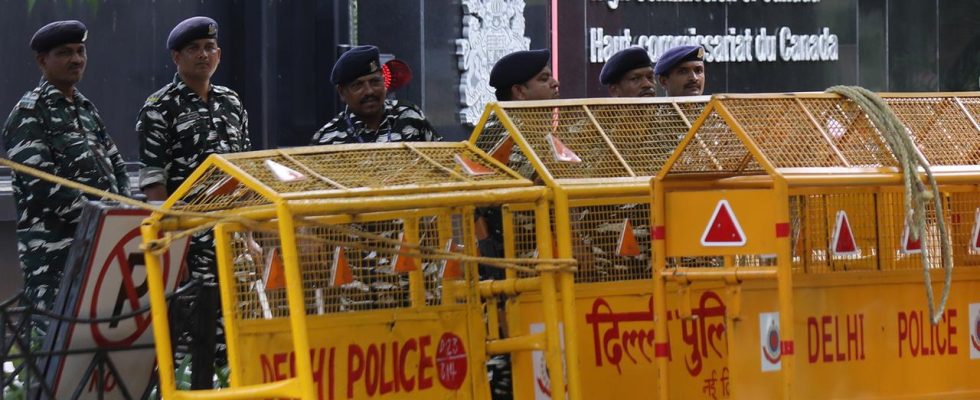Prime Minister Trudeau accuses India of murdering Canadian. It is a serious accusation – and a new low in a diplomatic conflict between the two states that has been simmering for a long time.
What Canada’s Prime Minister Justin Trudeau said in Parliament in Ottawa was clear: “In recent weeks, Canadian security agencies have been actively pursuing credible allegations of a possible link between Indian government agents and the murder of a Canadian citizen, Hardeep Singh Nijjar.”
Indian agents killed a Canadian. His country cannot accept that, said Trudeau, who only returned from the G20 summit in New Delhi just over a week ago. A high-ranking Indian diplomat is now being expelled from Canada because of the murder. “Any involvement of a foreign government in the killing of a Canadian citizen on Canadian soil is an unacceptable violation of our sovereignty,” Trudeau said.
Radical Sikh separatists
Canadian Nijjar was shot dead on June 18 in front of a Sikh temple in a Vancouver suburb. He was an activist in the so-called Khalistan movement. The Khalistan supporters want their own Sikh state in the Indian state of Punjab.
That’s why they keep taking to the streets. In addition, radical Sikhs have recently carried out attacks on Indian embassies and consulates in Canada and other countries; The government in New Delhi accuses them of terrorism. The man killed was also considered a terrorist in India for three years.
Trudeau had already stated in frustration at the G20 summit that relations between the two countries were deteriorating because of the Khalistan issue, according to the television channel India TV. The Canadian Prime Minister is accused by the Indian side of being too lenient with Sikhs of the Khalistan movement. This is believed to be because Trudeau’s Liberal Party has many voters among the nearly 800,000 Sikhs who live in Canada.
Canadian Sikh separatist Hardeep Singh Nijjar was considered a terrorist in India. Many supporters came to the funeral service in Surrey, Canada.
Bomb attack on flight from Canada
However, the dispute over radical Sikhs between the two states is older. On June 23, 1985, a Boeing 747 from the then state-owned airline Air India was traveling from Toronto to London. “Air India 182, good morning,” the air traffic controller greeted the pilots. Eight minutes later, the jumbo jet disappeared from radar. There was no longer any response to the calls from the tower at Shannon Airport in Ireland.
The Boeing broke apart off the southern tip of Ireland at a height of around nine kilometers. Sikh terrorists planted a bomb in the luggage compartment. With 329 deaths, it was the deadliest aircraft bombing before September 11th. A Canadian investigation report later said it was a story of oversights, errors and gross mistakes before and after the attack.
India calls allegations absurd
For India, it was a national trauma that comes to the fore again on a day like today. Prime Minister Trudeau is being savaged by Indians on social media, often with reference to the crash and Canada’s responsibility for it.
The fact that Trudeau is now accusing India of the murder of the Khalistan activist – without providing any evidence – is a disservice to the relations of both countries, according to Vikram Sood, former head of India’s foreign intelligence service. “We are not enemies, but he makes it seem like we are,” Sood said.
The Indian government has so far only responded in writing. It was said that the allegations from Canada were absurd. The Canadian ambassador in New Delhi was then summoned to the Foreign Ministry. He was told that India was expelling a senior Canadian diplomat in retaliation. It may be the beginning of a new ice age between the two countries.

